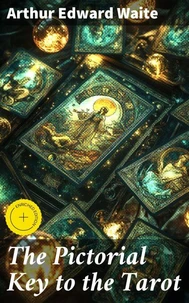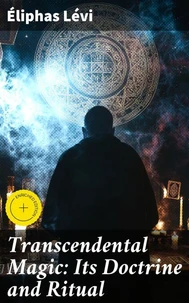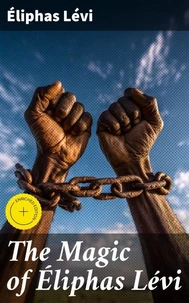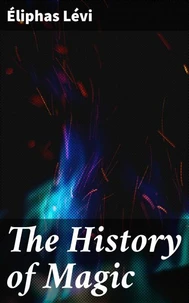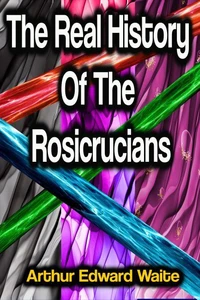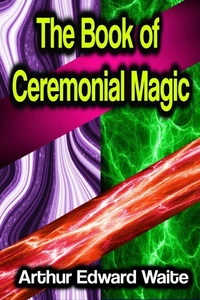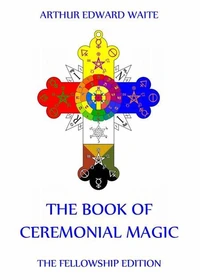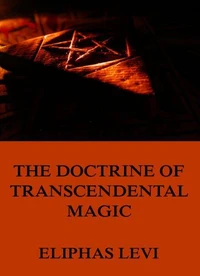Devil - Worship in France; or, The Question of Lucifer
Par :Formats :
Disponible dans votre compte client Decitre ou Furet du Nord dès validation de votre commande. Le format ePub est :
- Compatible avec une lecture sur My Vivlio (smartphone, tablette, ordinateur)
- Compatible avec une lecture sur liseuses Vivlio
- Pour les liseuses autres que Vivlio, vous devez utiliser le logiciel Adobe Digital Edition. Non compatible avec la lecture sur les liseuses Kindle, Remarkable et Sony
 , qui est-ce ?
, qui est-ce ?Notre partenaire de plateforme de lecture numérique où vous retrouverez l'ensemble de vos ebooks gratuitement
Pour en savoir plus sur nos ebooks, consultez notre aide en ligne ici
- Nombre de pages153
- FormatePub
- ISBN859-65--4737776-4
- EAN8596547377764
- Date de parution16/09/2022
- Protection num.Digital Watermarking
- Taille598 Ko
- Infos supplémentairesepub
- ÉditeurDIGICAT
Résumé
In "Devil-Worship in France; or, The Question of Lucifer, " Arthur Edward Waite delves into the intricate webs of occult practices and the socio-political undercurrents surrounding them in late 19th-century France. The book melds rigorous historical analysis with literary flair, employing a narrative style that balances scholarly rigor with a captivating prose that invites readers to explore the darker aspects of human belief.
Waite examines the cultural milieu of spiritualism and the resurgence of interest in demonology, framing his analysis within the broader context of European intellectual movements that grappled with the dualism of good and evil. Arthur Edward Waite, a prominent scholar of the occult, was deeply influenced by the esoteric traditions of his time. His extensive knowledge of Kabbalah, Tarot, and alchemical symbolism informs this work, revealing his commitment to exploring the interplay between mysticism and modernity.
Waite's personal experiences with the occult, along with his involvement in various esoteric societies, provided him with a unique vantage point from which to critique and analyze the phenomenon of devil-worship, particularly its manifestation in French culture. This compelling study is essential for scholars of religious studies, cultural history, and those fascinated by the occult. Waite's eloquent prose and exhaustive research offer invaluable insights that illuminate the complexities of human belief and the cultural anxieties of an age caught between enlightenment rationalism and spiritual longing.
Waite examines the cultural milieu of spiritualism and the resurgence of interest in demonology, framing his analysis within the broader context of European intellectual movements that grappled with the dualism of good and evil. Arthur Edward Waite, a prominent scholar of the occult, was deeply influenced by the esoteric traditions of his time. His extensive knowledge of Kabbalah, Tarot, and alchemical symbolism informs this work, revealing his commitment to exploring the interplay between mysticism and modernity.
Waite's personal experiences with the occult, along with his involvement in various esoteric societies, provided him with a unique vantage point from which to critique and analyze the phenomenon of devil-worship, particularly its manifestation in French culture. This compelling study is essential for scholars of religious studies, cultural history, and those fascinated by the occult. Waite's eloquent prose and exhaustive research offer invaluable insights that illuminate the complexities of human belief and the cultural anxieties of an age caught between enlightenment rationalism and spiritual longing.
In "Devil-Worship in France; or, The Question of Lucifer, " Arthur Edward Waite delves into the intricate webs of occult practices and the socio-political undercurrents surrounding them in late 19th-century France. The book melds rigorous historical analysis with literary flair, employing a narrative style that balances scholarly rigor with a captivating prose that invites readers to explore the darker aspects of human belief.
Waite examines the cultural milieu of spiritualism and the resurgence of interest in demonology, framing his analysis within the broader context of European intellectual movements that grappled with the dualism of good and evil. Arthur Edward Waite, a prominent scholar of the occult, was deeply influenced by the esoteric traditions of his time. His extensive knowledge of Kabbalah, Tarot, and alchemical symbolism informs this work, revealing his commitment to exploring the interplay between mysticism and modernity.
Waite's personal experiences with the occult, along with his involvement in various esoteric societies, provided him with a unique vantage point from which to critique and analyze the phenomenon of devil-worship, particularly its manifestation in French culture. This compelling study is essential for scholars of religious studies, cultural history, and those fascinated by the occult. Waite's eloquent prose and exhaustive research offer invaluable insights that illuminate the complexities of human belief and the cultural anxieties of an age caught between enlightenment rationalism and spiritual longing.
Waite examines the cultural milieu of spiritualism and the resurgence of interest in demonology, framing his analysis within the broader context of European intellectual movements that grappled with the dualism of good and evil. Arthur Edward Waite, a prominent scholar of the occult, was deeply influenced by the esoteric traditions of his time. His extensive knowledge of Kabbalah, Tarot, and alchemical symbolism informs this work, revealing his commitment to exploring the interplay between mysticism and modernity.
Waite's personal experiences with the occult, along with his involvement in various esoteric societies, provided him with a unique vantage point from which to critique and analyze the phenomenon of devil-worship, particularly its manifestation in French culture. This compelling study is essential for scholars of religious studies, cultural history, and those fascinated by the occult. Waite's eloquent prose and exhaustive research offer invaluable insights that illuminate the complexities of human belief and the cultural anxieties of an age caught between enlightenment rationalism and spiritual longing.


